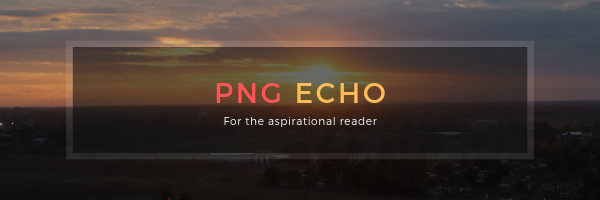By PNG Echo
This is part two in a series that has morphed from two articles into three. Considered are judicial ‘precedents’ – their advantages and disadvantages and whether they operate consistently in PNG- or does it depend on who’s being judged? Article three will address the wielding of power, more legal inconsistencies and consider the accountability of the judiciary and whether the new reforms will address any of the inherent and created problems.

Scrutiny of the PNG judiciary, especially in the social media, seems to fall into three categories – two of which are knee-jerk and mostly ill-considered.
There is the unbridled praise when a popular decision is reached, countered by equally unbridled condemnation when things go the other way – to the point of often-unsustainable accusations of corruption.
Then there are those who feel, wrongly I believe, that the judiciary should brook no criticism (especially if you’ve the temerity to criticise one of the former decisions.)
So while some people, sometimes consider that the judiciary will be the salvation of PNG there are some others who sometimes believe they’re part of the problem. I suspect most vacillate between the two positions depending on expediency.
The truth of the matter is that the judiciary in PNG has a long way to go before it will be anyone’s salvation and this is why.
Separation of powers

The independence of the three tiers of government – Executive, Legislative and Judiciary, was a French political ideal (Montesquieu) that came out of the Age of Enlightenment that also gave us the idea of liberty, tolerance and laïcité (i.e. separation of church and government.)
It is an oft-quoted ideal that many believe applies – but it never has. – not in PNG with the political and legal model that the nation inherited.
Firstly, all of the Executive are members of the Legislature and secondly, in the courts of justice it is not only written law that is considered – the judges must also take into account precedents and, should they be from a case in the local jurisdiction (i.e. PNG), the courts have an obligation to follow them unless they can establish a significant point of difference – the law leaves them no choice.
Precedents operate, ostensibly as judge-made law – a necessary overlap with the Legislature.
The obligation to follow precedents in one’s own jurisdiction is why it becomes imperative to strike out, on appeal, judgments found to be wanting, lest they prevail and actually stymie justice.

Such as the case, late last year in Bougainville, where junior judge (although a veteran of the legal fraternity – being both a former public prosecutor and President of the PNG Law Society) Sir Kina Bona, found an accused guilty of killing an unborn child.
The judgment was made easier (harder?) for the learned judge because the accused pleaded guilty. The judgment, as it stands, has elevated abortion to “killing” in Papua New Guinean law. The precedent is now set and all in PNG must legally adhere to it.
This is draconian and an affront to women in a context where they are already severely oppressed.
One can only hope that the judgment will be overturned on appeal. For while justice may be blind, hopefully it is not also stupid!
Of precedents followed and not
However, if it is true that the law gives no room for interpretation when it comes to following precedents in one’s own jurisdiction, in PNG that seems to be only honoured in the breach.
When a recent Commission of Inquiry into payments to private law firms was suppressed by order of the National Court, the suggestion was that people criticized in these reports were not given a chance to respond to the allegations and thus denied natural justice.
Likewise, when a tribunal was set up to consider the conduct of the Chief Justice by the O’Neill-Namah government there was an order stopping the tribunal for the same reasons – that the Chief justice had not had an opportunity to respond – thus denied natural justice.

However, more recently, lawyers Tiffany Twivey and Sam Bonner were not accorded the benefit of this “natural justice” that had been set as a firm precedent when a Supreme Court three-man bench decided, two to one, that their referral (in open court) to the Law Society for misconduct should not be stayed for the reasons of the denial of natural justice. Yet, as in the two previous cases, the lawyers had not been given the chance to respond.
What’s good for the goose, is definitely not so good for the gander in PNG, it seems.
Thus appearing before the court becomes a dark lottery, which was exactly what the practice of adhering to precedents was meant to counter. ‘What applied before, will apply again’ was a principle designed to promote confidence and security in the legal system.
Under the circumstances (that the lawyers were in court on cases involving politicians and police) and given the established precedents; that there had been no political bias inherent in the decision is drawing a long bow.
Which is exactly why it is in no one’s interest for the Prime Minister to subject himself unnecessarily to this sort of judicial scrutiny. It’s hardly a level playing field and in the next article I will expand further on the Power of the judiciary and ask whether that power resides in too few largely unaccountable hands.

